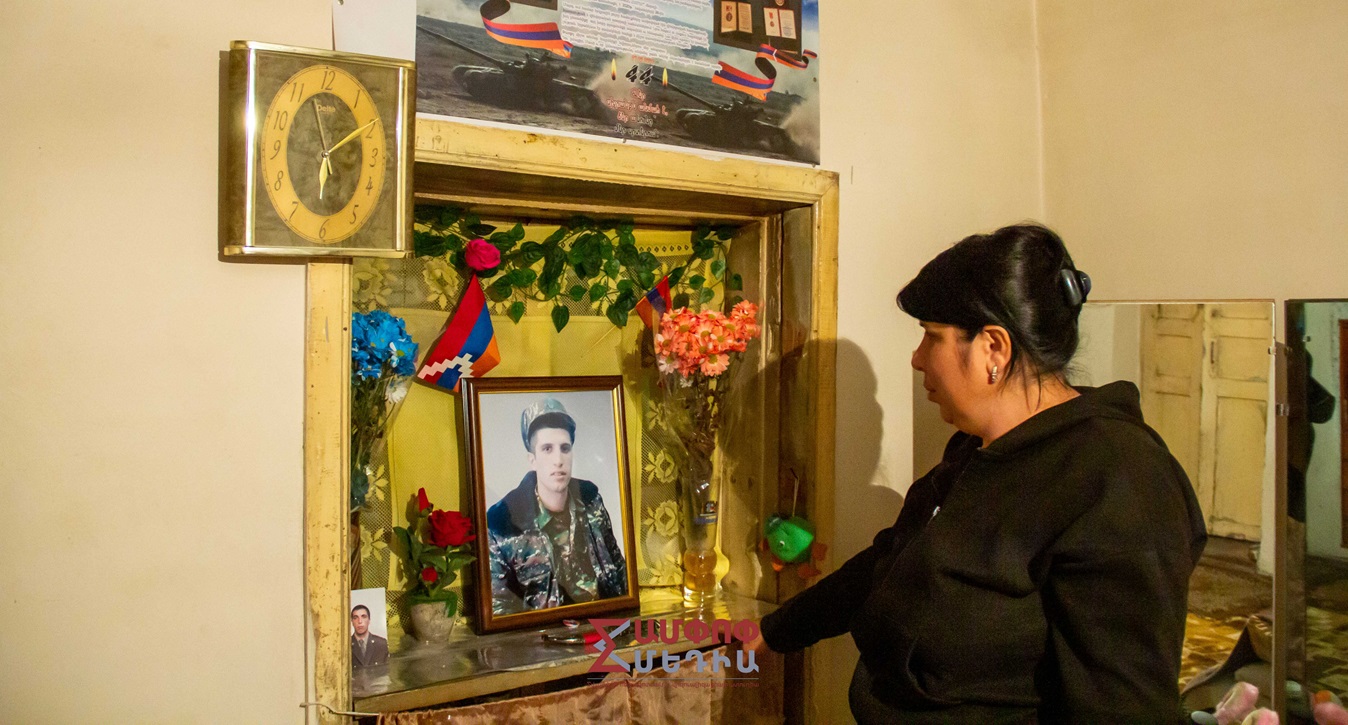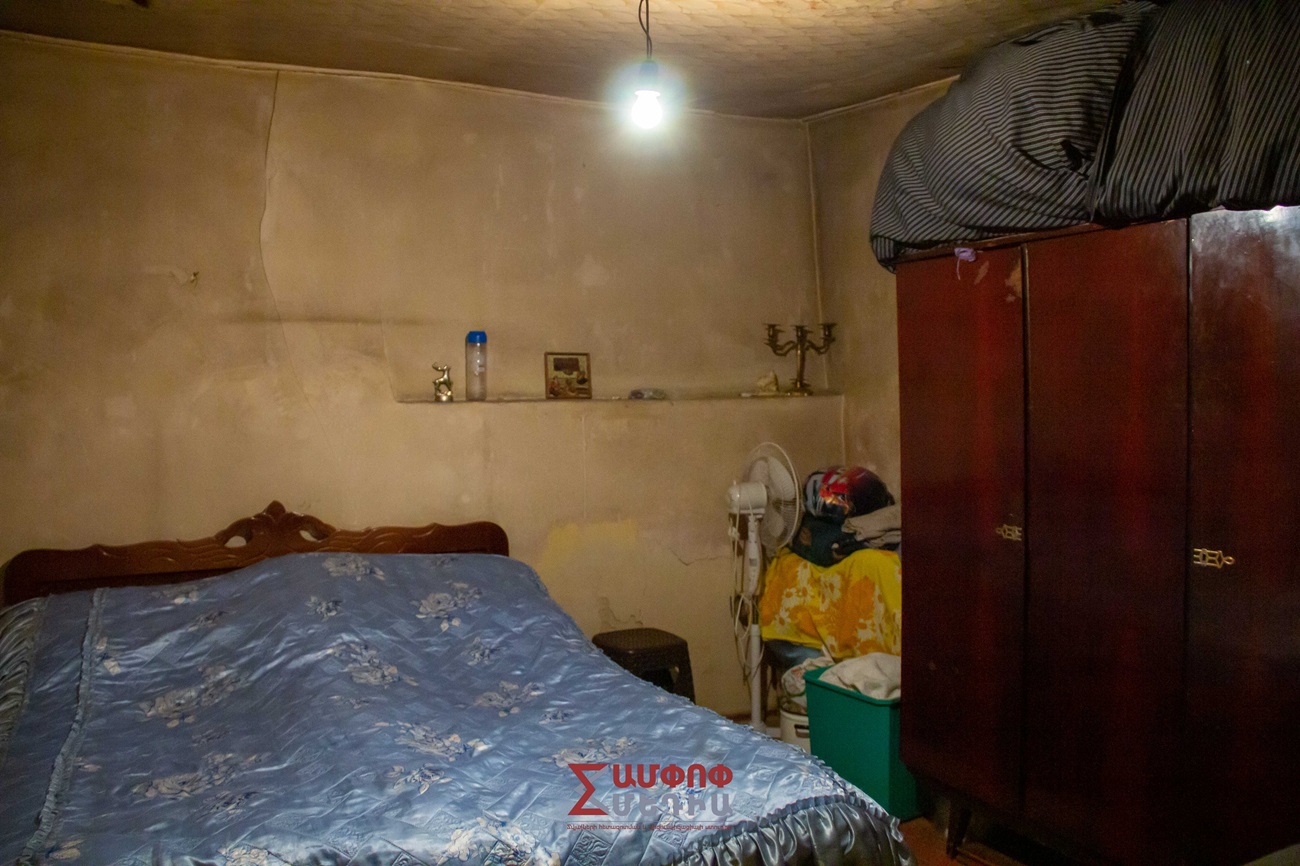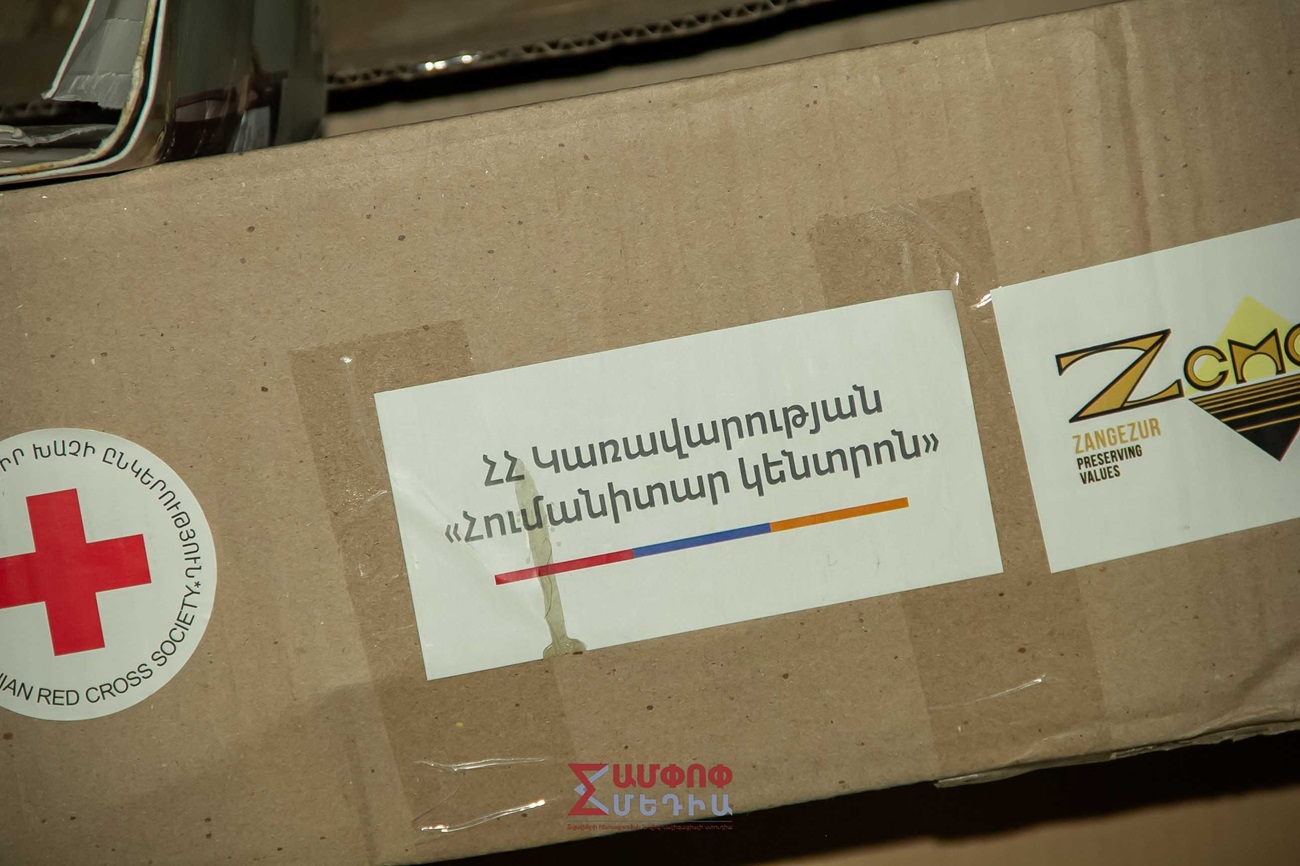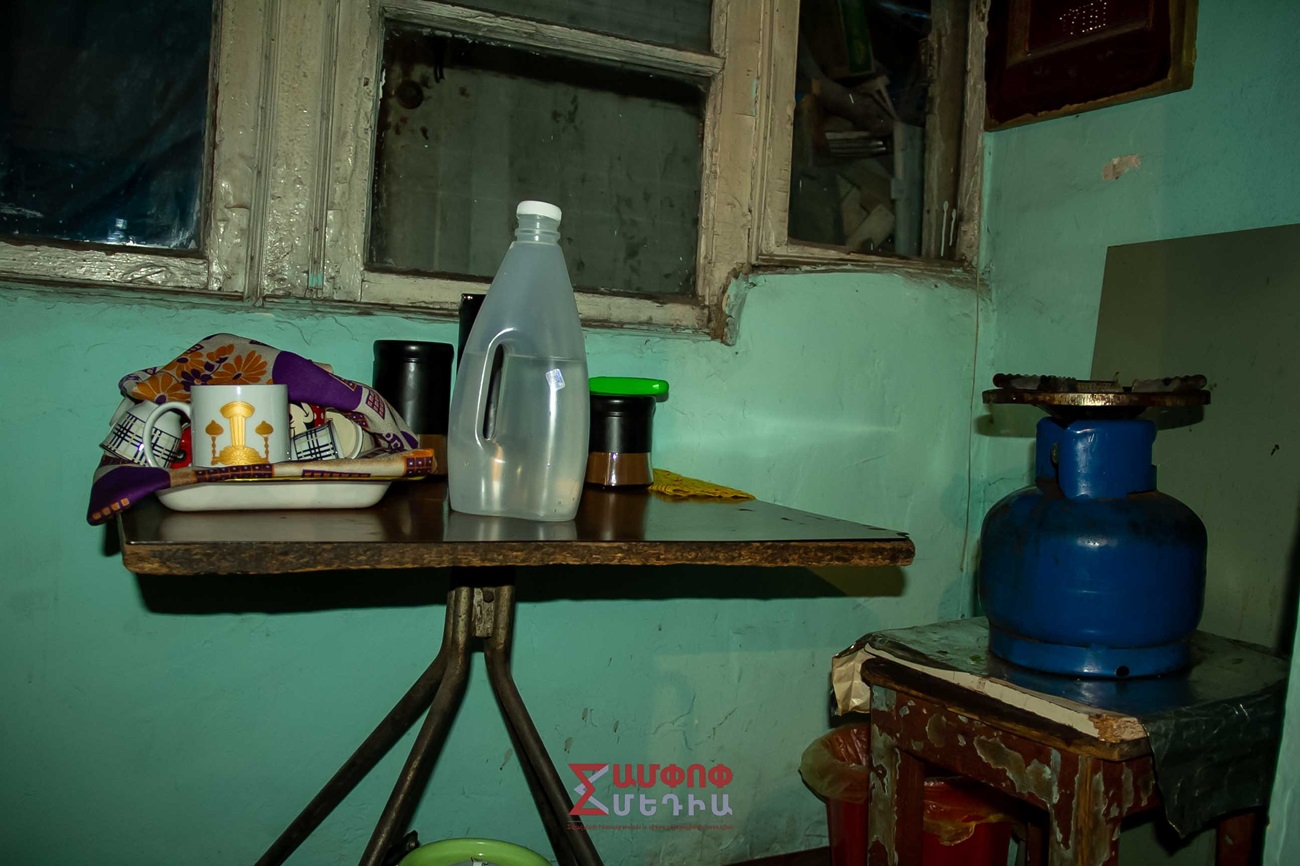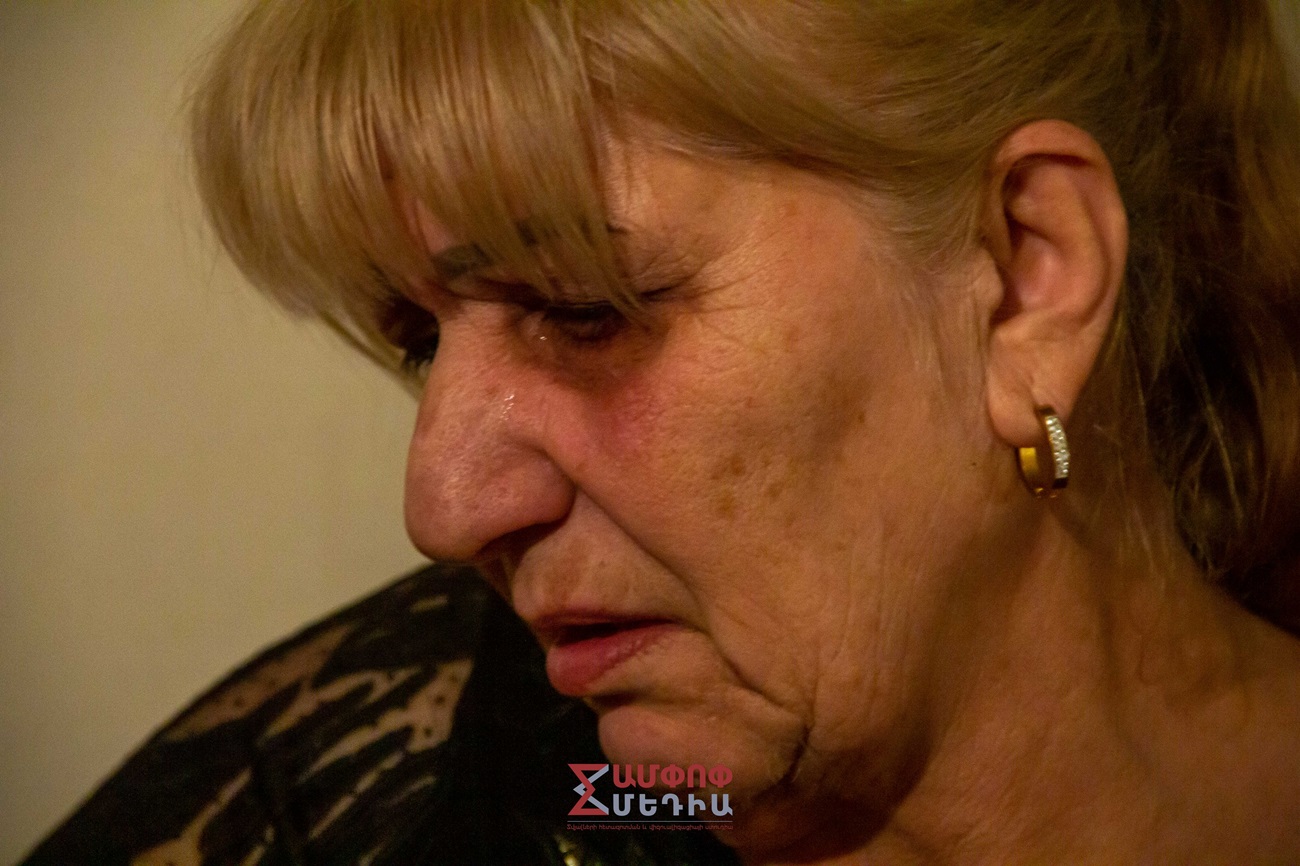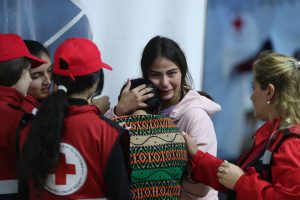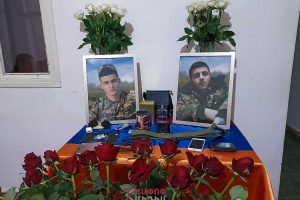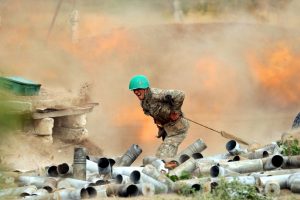Zamira, a forcibly displaced woman from Nagorno-Karabakh (Artsakh), lives with her husband, their youngest son, and her mother in a rented rundown house in Yerevan. The family shares the events that unfolded between 19 and 28 of September in turn. Zamira’s voice and eyes reveal the reality of the ordeal the family has gone through.
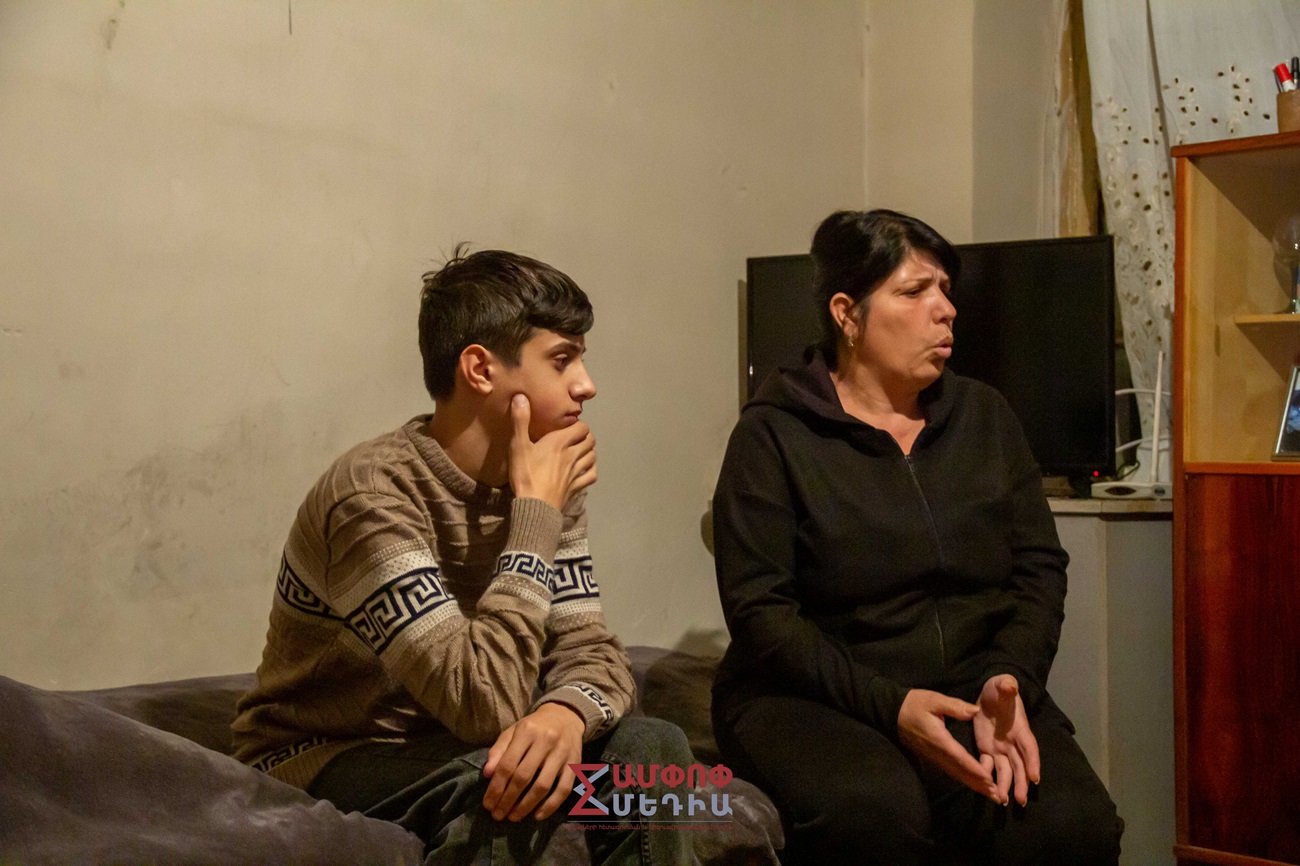
The family lost their elder son, Tatul, during the 44-day war. His body was found and buried only after about a year of searches. Zamira keeps repeating: “I would only thing about saving my younger son, I had to save him by all means,” as she tells her story of the events of the September war. “Nothing else mattered; and I praise Lord I have saved this one.”
The forcibly displaced woman managed to take just the part of family documents that fit into her purse. The population of Kichan’s Nor Kilikia district, about 30 households, were evacuated minutes after the Azerbaijani units launched the assault against Artsakh in the midday of 19 September, as the district appeared to be under direct fire from Azerbaijan. The village went under shelling soon after the population left the settlement.
“They would massacre us, if we did not flee the village as soon as we could. The shell was dropped right between our neighbor’s and our houses. As soon as the shelling began, and that was rather a shower shelling, people hurried to the bridge down the village, thinking it might be the safest place, despite the mudflow. Then the head of our village administration said, they were planning to transport people to Arajadzor on a Kamaz truck. Many of us refused to get into the truck assuming it might go under shelling, too. Most of the population preferred to go to Arajadzor by foot. It took us a day and a night through woods, mountains, and bushes. There was a pregnant woman with us, and a two-month old infant…,” Zamira recalls.
Her son, Felix, 15, adds:
We were thrice lost on the road, climbed up mountains, and got down, before we reached Arajadzor.
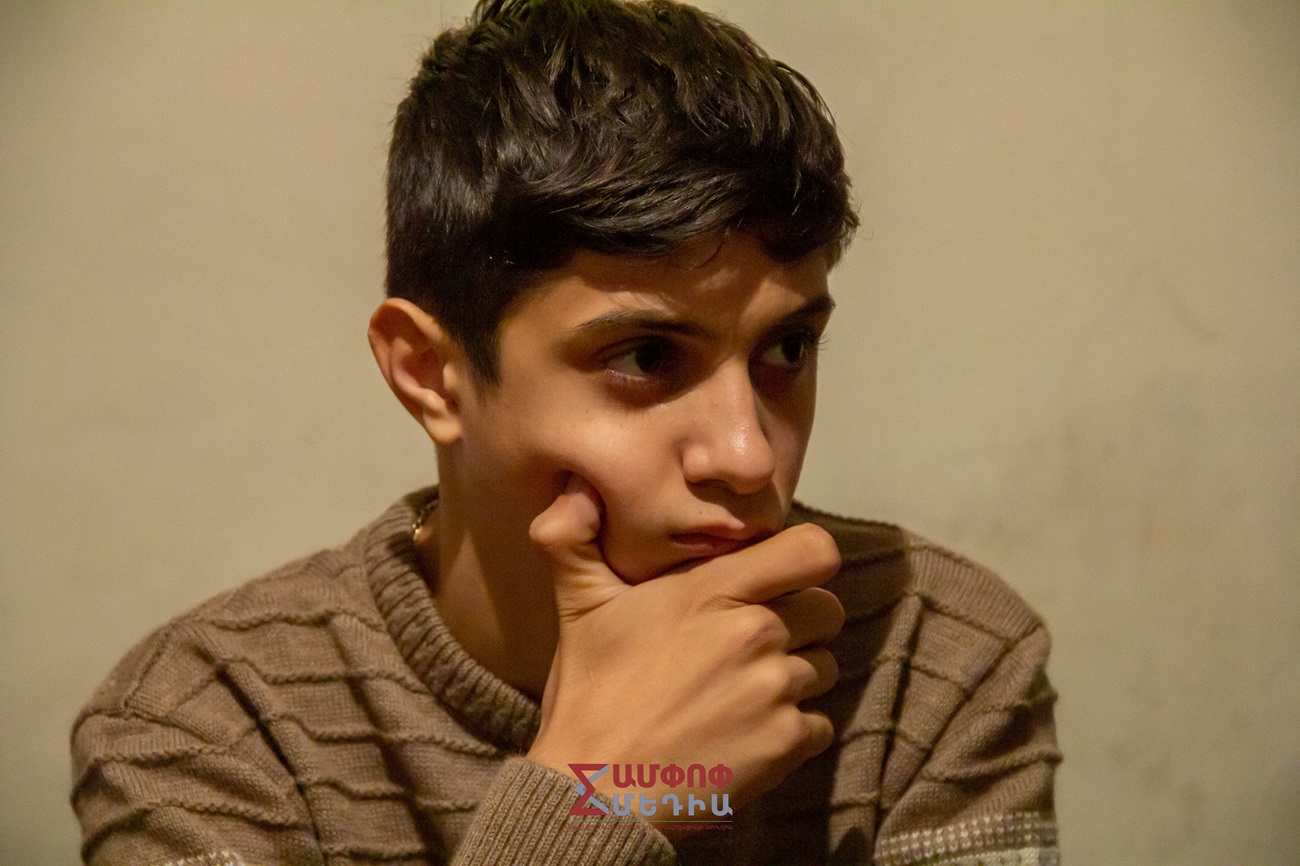
“Then, we were told Arajadzor had to be evacuated, too, because it was getting dangerous there, as well. Part of us left in a Ural, others took the Sprinter belonging to one of our neighbors. Once we reached Stepanakert, we were taken to a building of a school there. We stayed there by end of the day with neither food, nor water… We had left our village empty-handed, literally barefoot, and had stayed without food or water on the road. Gradually, we moved to the homes of relatives and acquaintances to take some time to figure out what to do.”
The news on the evacuation of Stepanakert that broke only two days following the evacuation, was a total shock. The fall of Stepanakert meant the fall of Artsakh. Broken psychologically and exhausted physically, people there hardly knew what to do.
The fall of Stepanakert meant the fall of Artsakh…
“There was neither fuel, nor we knew where to go. There was only one thing on our minds: to save the children. It was what all of us wanted; one of my in-laws’ acquaintances had an UAZ, and offered us to leave the town with them, warning that the vehicle had an open back. And since we had no choice, we got into the truck. The road took two days. We spent a night in the rain, under the open sky, with neither food nor water… My daughter with her two little children was with us. My husband was forced to ask for some bread for the kids.”
We spent a night in the rain, under the open sky, with neither food nor water…
We spent a night in the rain, soaked through to the bones, with neither food nor water around…
The hell of those September days left serious mark on Zamira’s health. The sufferings that the year 2020 brought to her had broken her, followed by the losses and the war that broke in September. Her home has been ruined to the ground: the woman says she still can’t get back on her feet.
The body of her son, Tatul, was found a year after the searches began. Four DNA samples were collected from the family; there were some coincidences, but Tatul’s body was identified only after his father’s samples were collected. Zamira had recognized her son back in 2021 from his nails…
Tatul was in Talish in the early morning of 27 September 2020, when Azerbaijan launched a large-scale assault along the whole contact line with Artsakh. Mrs. Zamira had last seen Tatul on 25 September. Later, as the war continued, and the family had lost contact with their son, Zamira asked her husband, a retired officer himself, to find and to save their son from the carnage of the frontline, but what she heard in response was: “I have no heart for that; and then, I am an officer, and I won’t ask my son leave the positions. He is no better than others…”
Their son’s remains were identified and buried after a year, following DNA tests. The fallen soldier was laid to rest in Yerablur; Mrs. Zamira’s brother, who died during the 44-day war in Mataghis, is buried in the Kichan cemetery. Zamira’s mother, Valya, whispers through tears: “I can’t even go to my son’s grave, I take his photo to my grandson’s grave in Yerablur, and mourn them both.”
Zamira’s brother, Masis, was 39, and her son Tatul was 19, when they died… The only dear thing for Zamira’s family, after losing Artsakh and their dear home, is the memorial corner, made up within the cold walls of their rented house.
The family that has lost dear ones for the sacred land of Artsakh lives in an unwelcoming house, where there is no water piping. To get water for cooking and laundry, Mrs. Zamira relies on the drinking fountain nearby. Every time she enters the house, she casts a glance on the pictures of her son and her brother, with wet eyes, reliving the recent events in her mind, then wiping her tears, committed to continue her struggle, this time for Felix.
By Lilit Poghosyan
Photo credit: Elen Mikayelyan
This article has been written in cooperation with the Friedrich Ebert-Stiftung (FES).
© All the stories, infographics and other visuals bearing the Ampop Media logo is possible to publish on other audiovisual platforms only in case of an agreement reached with Ampop Media and/or JFF.
Փորձագետի կարծիք
First Published: 28/11/2023


